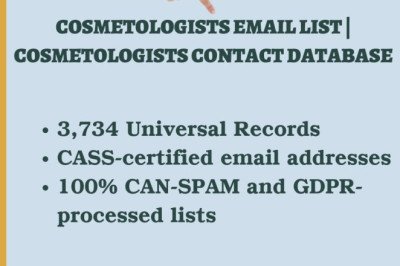views
Leveraged finance is a specialized field within the broader realm of finance that involves the structuring and arrangement of debt financing for companies that are looking to expand or finance a major transaction. Leveraged finance professionals work with private equity firms, investment banks, and other financial institutions to arrange to finance leveraged buyouts, mergers and acquisitions, and other strategic initiatives. The field is highly competitive and requires a combination of technical skills, industry knowledge, and relationship-building abilities, What is cash disbursement. Here are some key steps to consider if you're interested in getting into leveraged finance:
Develop a strong foundation in finance and accounting
A strong foundation in finance and accounting is essential for anyone looking to enter the leveraged finance industry. It is important to have a good understanding of financial statements, accounting principles, and financial analysis techniques. A degree in finance or accounting is typically required for entry-level roles, although some firms may accept candidates with degrees in related fields such as economics or mathematics.
Gain experience in investment banking
Leveraged finance is a specialized area within investment banking, so gaining experience in this field is crucial for anyone looking to make a career in leveraged finance. Working as an analyst or associate in an investment bank's leveraged finance team can provide valuable experience and exposure to the industry. These roles typically involve financial analysis, due diligence, and deal execution, and require strong analytical and communication skills.
Build relationships with industry professionals
Building relationships with industry professionals is a key part of getting into leveraged finance. Networking is crucial for anyone looking to make a career in finance, and this is particularly true for leveraged finance, where deal flow is often driven by relationships. Attending industry conferences, joining professional organizations, and connecting with people on LinkedIn can all be effective ways to build relationships with industry professionals.
Consider a role in private equity
Many leveraged finance professionals start their careers in private equity before transitioning into leveraged finance. Private equity firms are major users of leveraged finance, and working in this field can provide valuable experience in deal sourcing, due diligence, and deal execution. Private equity firms also typically have strong relationships with investment banks and other financial institutions, which can help facilitate a transition into leveraged finance.
Develop industry knowledge
Having a strong understanding of the industries in which leveraged finance is active is important for anyone looking to make a career in this field. Leveraged finance is often used to finance transactions in industries such as healthcare, technology, and energy, so having knowledge of these industries can be helpful. Reading industry publications, attending conferences, and speaking with industry professionals can all be effective ways to develop industry knowledge.
Build a track record of successful deals
Building a track record of successful deals is important for anyone looking to make a career in leveraged finance. Successfully executing transactions and generating returns for investors can help establish a reputation for excellence in the industry. This can be achieved by working on deals in investment banking or private equity, or by starting your own firm and executing successful transactions.
Consider a specialized role
There are a variety of specialized roles within leveraged finance, including debt syndication, credit analysis, and restructuring. Depending on your skills and interests, one of these specialized roles may be a good fit for you. Debt syndication involves arranging and structuring debt financing for companies, while credit analysis involves evaluating the creditworthiness of borrowers. Restructuring involves working with distressed companies to help them reorganize their debt and avoid bankruptcy.
In conclusion, getting into leveraged finance requires a combination of technical skills, industry knowledge, and relationship-building abilities. Developing a strong foundation in finance and accounting, gaining experience in investment banking, building relationships with industry professionals, and developing industry knowledge are all key steps to consider.












Comments
0 comment